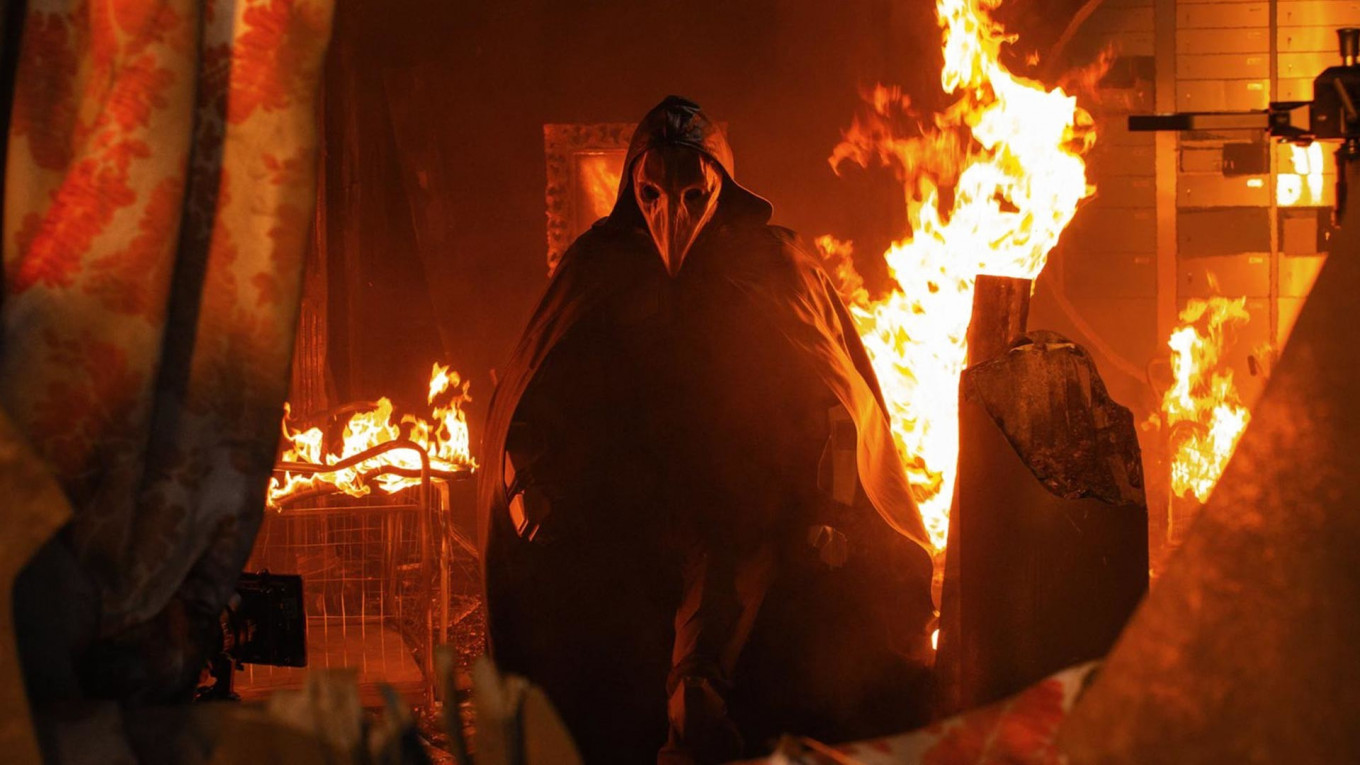“Major Grom: Plague Doctor,” the newest smash-hit from streaming giant Netflix, has been topping the charts worldwide this week in more than 50 countries from Belgium to Brazil. It’s the first time a Russian-language film has hit the Netflix jackpot, perhaps marking a new era in Russian culture’s relationship with the Western world.
Or perhaps it is just popular because it’s a cheesy action film that tries to be political and impart some kind of message.
“Major Grom” is an adaptation of a comic book of the same name in which Detective Igor Grom (literally “Igor Thunder”) is an edgy and painfully non-self-aware officer, known for wreaking havoc in the city in the name of justice. In the opening scene, he causes multiple car accidents, probably some civilian casualties and destroys a St. Petersburg plaza and a statue all to catch some bank robbers.
A new “super-villain,” the Plague Doctor, comes on the scene, taking revenge on rich kids and other members of the elite who have gotten away with crimes by killing them in disturbing and fire-based ways. The Plague Doctor turns out to be the best friend of “Sergei Razumovsky,” the creator of VMeste social media platform — obvious to all Russian viewers as stand-ins for Pavel Durov and his VKontakte and Telegram platforms.
Major Grom goes off to catch the baddie, against explicit orders from his superiors, with a new trainee police officer and freelance journalist helping him. Of course, by the end of the film, which is filled with plot twists, he learns the power of friendship and love (cue heartfelt music).
Although the film has plenty of unintentional comic moments for Russians — like the massive and dusty apartment that Grom lives in, impossible on a cop’s salary — it does get a few things right. “Major Grom” translates Russian idioms and other language peculiarities into English really well most of the time — a rarity for Russian films. True, not everything survives translation: After Grom destroys the pavement in St. Petersburg, he shrugs that they just repave it every year anyway.
As with all viral films, conspiracy theorists have been quick to see connections, pointing out that the founder of the publishing firm which released the film, Bubble, is the son of the pro-Kremlin tabloid LifeNews and noting its anti-oppositional and pro-government position. On the other hand, Major Grom seems to criticize the Russian police force and security organizations — but not really, as they eventually save the day. Digging for meaning in this film is like trying to dig a hole in dry sand—as soon as you make some progress, something new comes along and fills it back up.
But if one ignores the flailing attempts at meaning, it’s great light entertainment or excellent background noise while you scroll through Instagram.
A Message from The Moscow Times:
Dear readers,
We are facing unprecedented challenges. Russia's Prosecutor General's Office has designated The Moscow Times as an "undesirable" organization, criminalizing our work and putting our staff at risk of prosecution. This follows our earlier unjust labeling as a "foreign agent."
These actions are direct attempts to silence independent journalism in Russia. The authorities claim our work "discredits the decisions of the Russian leadership." We see things differently: we strive to provide accurate, unbiased reporting on Russia.
We, the journalists of The Moscow Times, refuse to be silenced. But to continue our work, we need your help.
Your support, no matter how small, makes a world of difference. If you can, please support us monthly starting from just $2. It's quick to set up, and every contribution makes a significant impact.
By supporting The Moscow Times, you're defending open, independent journalism in the face of repression. Thank you for standing with us.
Remind me later.






